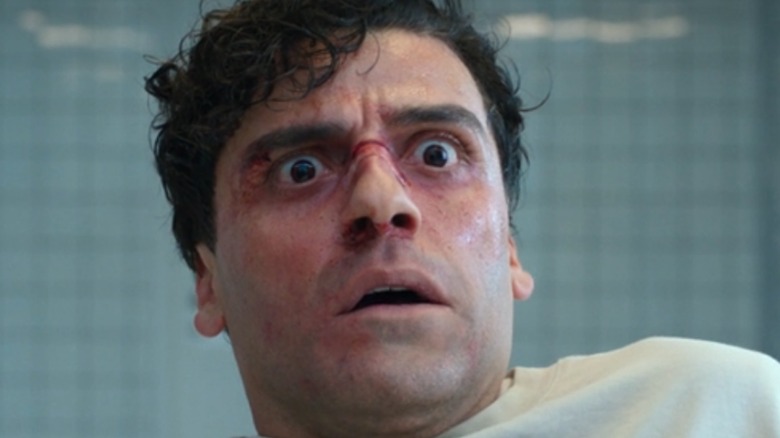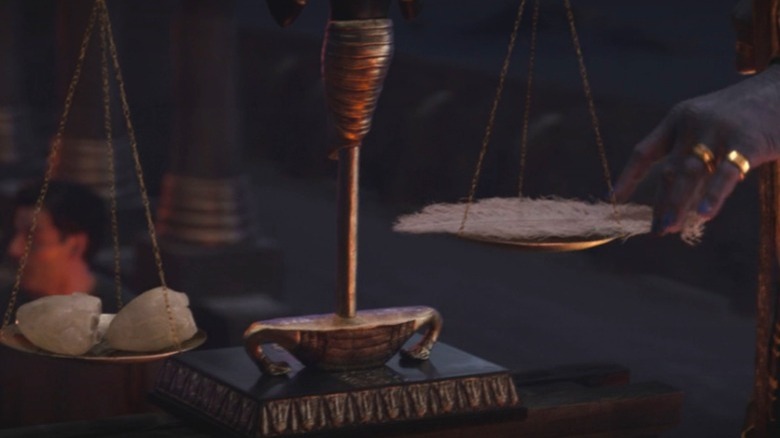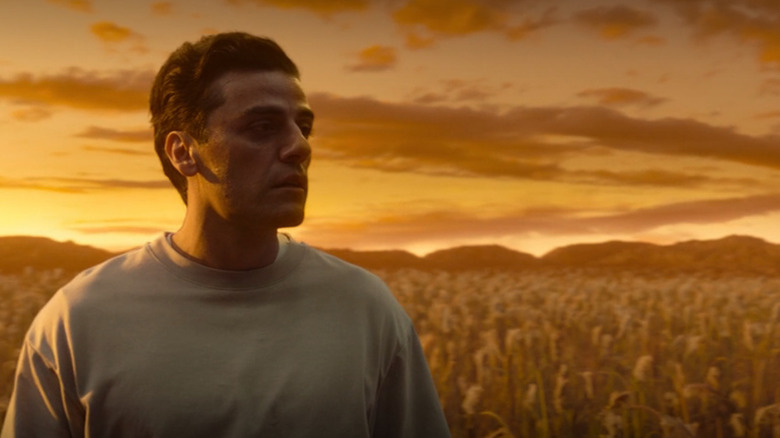The Field Of Reeds In Moon Knight Episode 5 Explained
Contains spoilers for "Moon Knight" Season 1, Episode 5
The Egyptian gods are very much real in Marvel's "Moon Knight." Without Khonshu's (F. Murray Abraham) aid, Marc Spector (Oscar Isaac), would have never become the titular hero. Khonshu is the Egyptian god of the Moon, but he is far from the only deity that has a human avatar in play. Arthur Harrow (Ethan Hawke) is an extension of Ammit, who represents all things that ancient Egyptians feared and has also been given the title "the Devourer of the Dead" (via Study.com).
Episode 5 of "Moon Knight" leans heavily into the lore of the Egyptian underworld, and this episode sees both Marc and Steven, his alter, in individual bodies and traveling through a transitory afterlife, called Duat. Duat acts as a sort of purgatory between varying afterlives, and all souls must travel through Duat to reach their ultimate destination (via Symbol Sage). Guided by the Egyptian goddess of childbirth and fertility, Taweret (Antonia Salib), Marc and Steven are charged with balancing their hearts against the Scales of Justice, and if they are unable to achieve balance, they will be dragged down into the sands of Duat by other unworthy souls, and they will never reach the Field of Reeds. But what exactly is the significance of this particular place in the context of Egyptian history?
The Field of Reeds is the best version of the afterlife according to Egyptian history
The final moments of Episode 5 of "Moon Knight" see Marc eventually appear in the Field of Reeds, but what did this place mean to the ancient Egyptians? It turns out that the Field of Reeds is actually the final goal of all Egyptians and was seen as a sort of idealized afterlife. To the Egyptians, the Field of Reeds is an exact mirror of their lives, should they be worthy, and they believed that they should live as close to perfect as possible in order to secure a beautiful and everlasting version of that in the great hereafter (via World History Encyclopedia).
Also known as A'aru or the Field of Offerings, this place only exists for those the gods deem fit and is not automatically accessible. In "Moon Knight," this is best represented by the two hearts of Marc and Steven being weighed on the Scales of Justice against the Feather of Truth.
Marc and Steven prove worthy, and Marc finds himself in the Field of Reeds
Ancient Egyptians believed that if one's heart, believed to be "the dwelling of the soul," balanced against Ma'at's feather, then they would be allowed to reach the Field of Reeds. In "Moon Knight," Steven and Marc's balance swings wildly throughout most of the episode, but as they confront uncomfortable truths, the scales begin to stabilize. Unfortunately, they never balance despite their best efforts, and it appears as if they are doomed.
Attacked by unworthy souls, Steven engages in an act of self-sacrifice, which has the unintended effect of righting the Scales of Justice. Once this occurs, Marc immediately appears in the aforementioned Field of Reeds and is bathed in golden sunlight, signifying that his soul is now in harmony. What this means for the future of "Moon Knight" is anybody's guess, but at least we know that Marc is whole and considered worthy in the eyes of the Egyptian gods. The real question is whether or not Marc will be able to free Khonshu and stop Harrow's plan for global mass murder, though it may require a bit of finesse considering his current location.


